![]()
Iran’s fragile currency market
The editorial of Tejarat mulls over instability in Iran’s currency market, going over different theories and justifications that are offered in this regard.
The currency market has become the most fragile in the country, and it doesn’t follow any specific rules. Changes in the currency rates are so unpredictable, and they challenge economists and established economic rules. The currency market, as such, defies any prediction.
Some say that changes in the currency are due to US sanctions and threats. They think that some countries intend to disrupt Iran’s economy; they will buy the currency and take it out of the country to create challenges for the economy.
Some hold that the price of the dollar must go up when prices rise; if we keep the dollar rate fixed for some time, it will suddenly leap up like a spring. They cannot offer a convincing reason as to why the price of currency hasn’t changed in some countries for years.
Some think the economy works in a sequence. They believe that if wages go up then prices of goods and services will increase, the price of currency too must proportionately rise.
Some believe that the currency is like a tool in the government’s hand: whenever there is a budgetary shortage, the government acts as a currency dealer and collects dollars from the market so that the price of the dollar goes up. Meanwhile, some accuse the government of mismanagement and think that government officials are responsible for the high price of currency and disarray in the currency market.
Amidst all the chaos, what is unfortunate is that the salaried, workers, and retirees are the ones who must pay the price of all the changes in the currency market.
Tejarat
The legal status of airing confessions of arrested protesters on TV
Following the popular protests against the tripling of gasoline prices, Iran’s state TV (IRIB) has aired confessions of those who were arrested during the protests. In an unprecedented move, Iran’s interior minister has asked IRIB to air more confessions by those who were arrested. The editorial of Arman Melli, written by lawyer Samad Khoramshahi, focuses on why such confessions aren’t legally admissible.
These days we are witnessing the confessions of those arrested during the recent protests being aired on IRIB. These confessions are against the legal criminal code, and the constitution. Therefore, they cannot have a legal basis.
It is hard to accept that individuals would talk to their own disadvantage on TV in front of millions of people, thus overshadowing their own future. According to the law, the accused must meet and speak with their own lawyers within 48 hours of their arrest.
As for these TV confessions, the big question is whether the accused have made their confessions in the presence of their lawyers or not? The IRIB has for years aired TV confessions, before the completion of preliminary investigations. One should ask questions regarding how TV confessions have been obtained from those arrested over the years.
According to the legal criminal code and the constitution, the accused mustn’t be physically or mentally coerced to make a confession. No one is guilty unless proven otherwise, which is why those accused must be free to defend themselves.
On the other hand, the IRIB or any other media outlet cannot reveal the details of a case while investigations are ongoing and when preliminary investigations haven’t been completed. The details of a case can be disclosed only when the verdict has been issued against an individual. It is only then that the media can deal with the case, and confessions can be aired.
Arman Melli
National media’s budget
The editorial Servat focuses on the huge amount of money spent on the national media (IRIB) in Iran and the IRIB’s failure in fulfilling its role. In Iran, people mostly turn to Persian-speaking networks overseas for news, information, and entertainment, which makes the IRIB almost irrelevant to them.
There are horrifying statistics regarding the IRIB’s expenses that will make any media expert worried.
The IRIB’s budget consists of 7% of the government’s annual budget, taxes levied on each TV set purchased in Iran, revenues obtained through advertisements, and a special budget set for fighting foreign culture and world arrogant powers. Meanwhile, the national media doesn’t play any role in solving any of Iran’s social malaise and problems.
In the past the people didn’t have any choice and had to watch IRIB’s programs. If a poll is carried out, it will show that people are using other media networks to meet their cultural, social, and factual needs.
The IRIB squandering money forces us take a look at and criticize this huge media organization, particularly at the time when there is a budgetary shortage everywhere. That IRIB is run like a political party and is unable to meet the demands of the establishment. This indicates that the IRIB needs to undergo drastic changes.
Under economic pressures, the national media must suggest ways for improving public affairs. But the hierarchal structure which dominates the IRIB destroys its role. All the abovementioned budget allocated to IRIB could have been used for building schools and hospitals.
The money spent on national media is wasted. Now that civil and public budgets are being limited, the IRIB’s budget too can be revisited.
Servat
The deadlock of holding legal protests in Iran
The editorial of Setareh Sobh, written by Dr. Nemat Ahamdi, a lawyer, points to that even though the Iranian constitution gives people the right to hold demonstrations and assemblies, this law has never been implemented. In the recent popular protests in Iran against the tripling of gasoline prices, at least 138 people were killed.
After the recent protests against gasoline price hikes, all officials including the president asserted that holding a protest is an inalienable right of every Iranian. But no one says how the protests should take place. During the past 40 years, it has been impossible to implement Articles 26 and 27 of the constitution which give the people the right to protest.
According to Article 26, all associations and parties are free, and no one can be prevented from participating in political parties. But looking at the past, we can see that many parties – without breaking the law – have been dissolved. As a result of this, today there are no political parties in the real sense of the word in Iran.
In Article 27, it is emphasized that assemblies and demonstrations can be held, on the condition that no one carries weapons and that they are not against the foundations of the Islamic Republic.
But these two Articles are limited by domestic regulations, and all assemblies require permits from the interior ministry. During all these years, not a single permit has been issued by this ministry for those who are critical of the government. Of course, there are certain [hardline] groups and factions in Iran that do not need a permit and they are even allowed to climb embassy walls.
Now that there have been protests against hikes in gasoline prices, officials keep saying that people should express their objections through legal channels, but they don’t say what those legal channels are!
Many issues can be resolved through dialogue and acting in compliance with the law, but when the aforementioned are hindered, people naturally look for other ways that are not desirable and are costly.
Setareh Sobh
![]()
Tens of millions of hungry Iranians will soon destroy everything
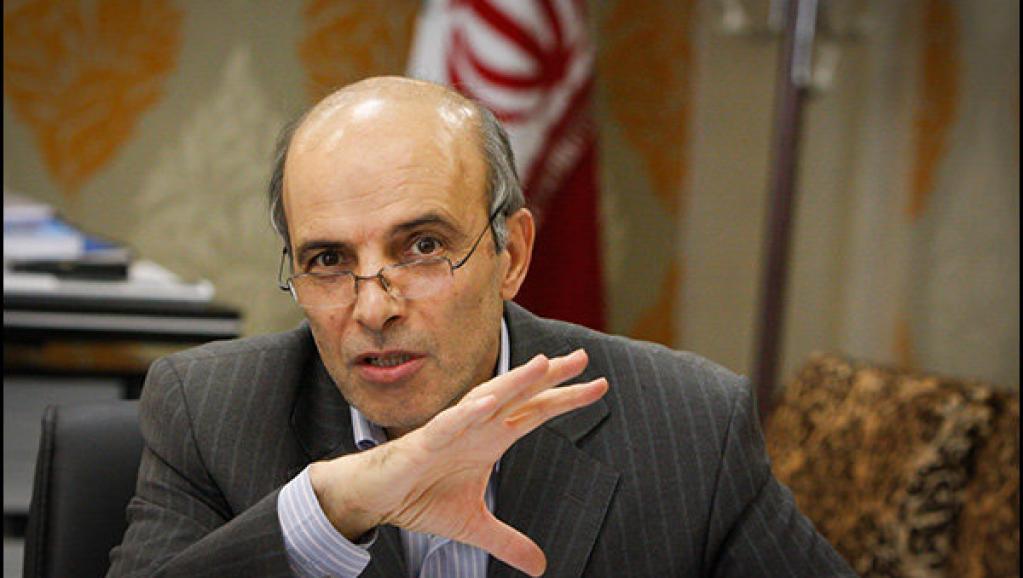
Saeed Mo’ayedfar, a sociologist residing in Iran, said in regards to the recent protests that they are different to the protests held in 2009 and 2017. He said that the most important feature of these protests was that they were the outcome of millions of hungry slum dwellers lurking in the margin of metropolises in Iran. Their frustration is the result of 40 years of wrong policies pursued by the Islamic Republic. Mo’ayedfar added that the so-called reformist movement in Iran has lost its credibility, so it can have no impact on the current protests.
“Today we are left with nothing but a bankrupt economy, corruption, discrimination, and wrong policies that have impacted villages during the past 30 to 40 years. In the margin of cities – where money and economic resources are concentrated – an army of hungry people is formed, and day by day, they get more and more ready and motivated to attack the metropolises,” asserted Mo’ayedfar.
He emphasized that this army – which according to experts consists of more than 24 million people – will soon attack the metropolises unless a solution is found. Mo’ayedfar, however, admitted that there is not much time left for finding a solution, because the foundation of the economy, politics, culture, and morality has been destroyed.
A hurricane, according to this sociologist, is going to hit the country, which will inflict damage to all. The army of the hungry will be so powerful that no one can stop it, said Mo’ayedfar. It will be like a flood destroying everything on its way.
RFI
Setareh Sobh
Protests in Iran: 143 dead, 7000 arrested;
IRIB expert: torture them to death!
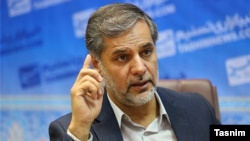
Hossein Naghavi Hosseini, a member of Parliament’s National Security and Foreign Policy Commission, announced that in the recent protests more than 7000 people have been arrested. The Islamic Republic’s officials have not announced the number of the dead in these protests which were triggered by hikes in gasoline prices. But according to Amnesty International, at least 143 people have been killed in the recent protests. Unofficial sources say that the number of the dead is much more than this.
Meanwhile, an expert on Iran’s state TV, IRIB, called for torturing the protesters to death and cutting their hands and feet off.
Abolfazl Pourbahram, an IRIB Quranic science expert, called the protesters “enemies of God”, calling for ruthless execution and punishment for them. He disagreed with releasing those who were arrested in the recent protests. The other punishment he suggested was sending the protesters to exile. But he added that they shouldn’t be sent to a place with good weather like the city of Shiraz; rather they should be put on an old ship and sent out to sea to suffer and die there.
Radio Farda
Iran International
The Islamic Republic pressures journalists inside and outside Iran
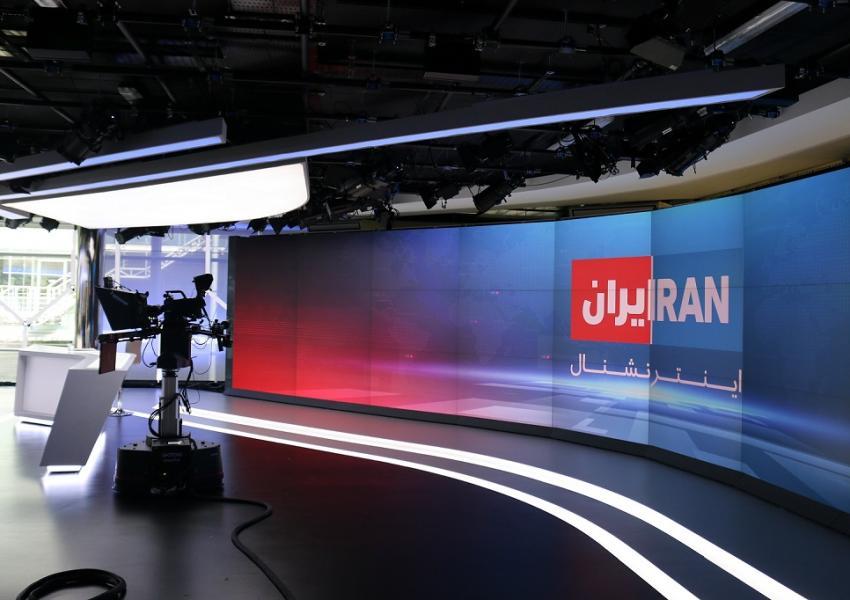
The Iranian Judicial system has banned the staff of Iran International – a Persian-speaking TV network – from doing transactions in Iran, just because of it covering the recent protests in Iran.
Mizan news agency, affiliated with Iran’s judiciary, announced that “the key, influential elements of this network [Iran International]” will face “legal and judicial restrictions with regard to their properties” in Iran.
In recent days, the families of Iran International’s staff have been persecuted by the intelligence ministry of the Islamic Republic. Issuing a statement in this regard, Iran International objected to these unlawful and inhumane measures of the Islamic Republic, announcing that it will follow up its complaint against the Islamic Republic’s government through international channels.
Iran International had a live coverage of the recent protests in Iran which were against gasoline price hikes.
The network’s statement said: “The Iranian regime is terrified of the free flow of information and is after silencing independent media with such measures. The Iranian regime wants to severely suppress the popular protests, but doesn’t want any media to reflect public voices in the world”.
Previously, the Iranian judiciary had banned BBC Persian employees, too, from doing transactions in Iran.
Meanwhile, journalists inside Iran have been under pressure as well. According to the Center for Human Rights in Iran, during the recent popular protests, more than 8 journalists have been summoned by the intelligence ministry, and Iran’s ministry of Islamic Culture and Guidance has given warnings to some journalists about their reports and tweets.
A journalist from within Iran told the Center that most journalists do not have access to the internet and they can only open the pages of state-run media like IRNA and ISNA, adding “what we see in the streets – for example, strong security atmosphere in Enghlab Square [in Tehran] – is absolutely different from what is written in newspapers. Our observations are different from what we are allowed to write!”
Iran International
Deutche Welle
Iran and Syria to establish a joint bank
Iranian companies to build 30,000 houses in Syria
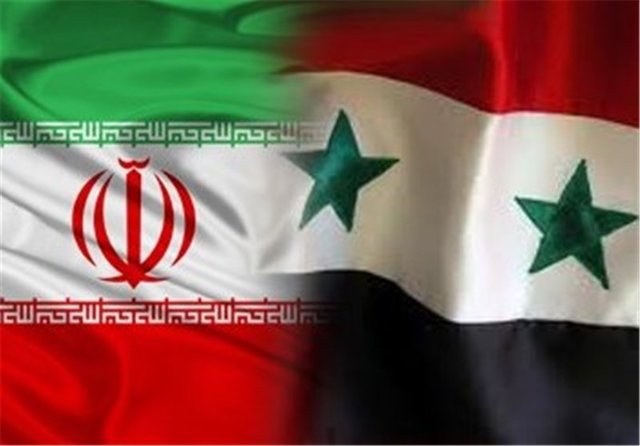
Syria’s public works and housing minister, who travelled to Iran on the invitation of the Iranian minister of roads and urban development, announced that cooperation with Iranian companies is one of the main priorities of his government, adding that establishing a joint bank is a part of the plans of Iran and Syria.
In the Iran-Syria business forum held in Iran’s chamber of commerce, Syrian Minister Mohammad Abdul Latif said that the signed agreement in the Iran-Syria Joint Executive Committee was after several significant projects were agreed, one of which is establishing joint companies by Iran and Syria. He added that these companies can start their activities in all Syrian provinces, and there is even no need for them to take part in bids.
The Syrian housing minister pointed to difficulties that exist in banking cooperation between the two countries, asserting that by establishing a joint bank, part of these difficulties will be solved.
Meanwhile, the Iranian minister of road and urban development, Mohammad Eslami, announced that Iranian companies will construct 30,000 housing units in Syria.
The Islamic Republic will construct houses in Syria while the people in Iran are facing a housing crisis.
ISNA
Radio Zamaneh
Iran demands a $2bn loan from Russia
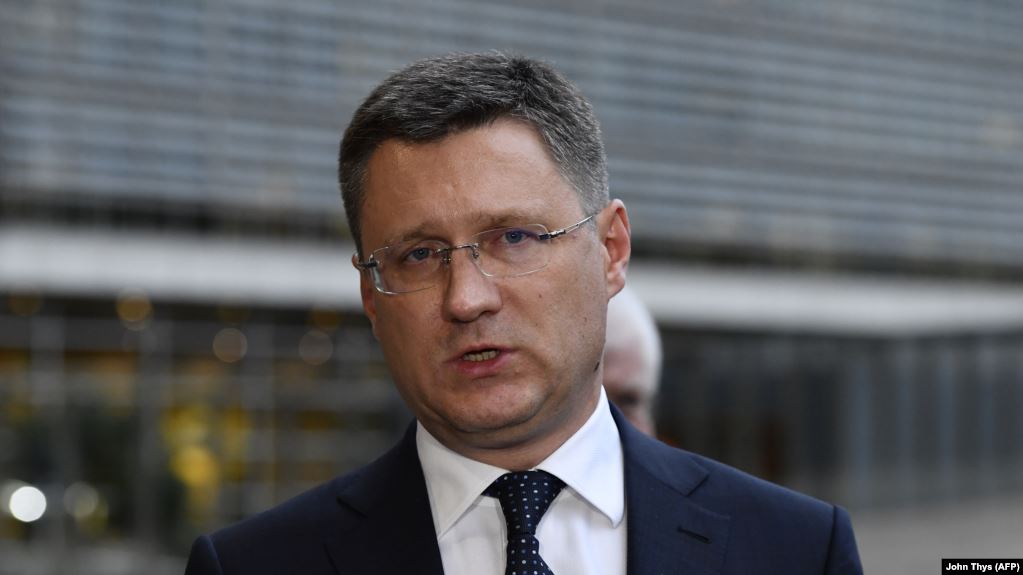
The Russian Energy Minister Alexander Novak said that Iran has asked for a $2bn loan from his country, and it intends to increase the loan to $5bn. He added that Russia’s Treasury will probe this issue.
According to Novak, this loan is for building thermal power plants, hydropower plants, railroads, and metro wagons.
Even before signing the nuclear deal, there was an agreement between Iran and Russia over a $5bn loan, and in accordance to a 2015 agreement, several contracts were signed by Russia for granting a loan to Iran. But in his recent trip to Russia, Iran’s Energy Minister Reza Ardakanian said that there have been negotiations over granting loans to Iran for new plans.
According to official statistics of Russia’s Customs Services, Russia had $391 million worth of imports from Iran during the first 9 months of this year, which shows no changes compared to the same period last year. But its exports to Iran reached $1.2bn showing a 37% increase.
Radio Farda
Major oil leak near Iran’s oil platform in the Gulf
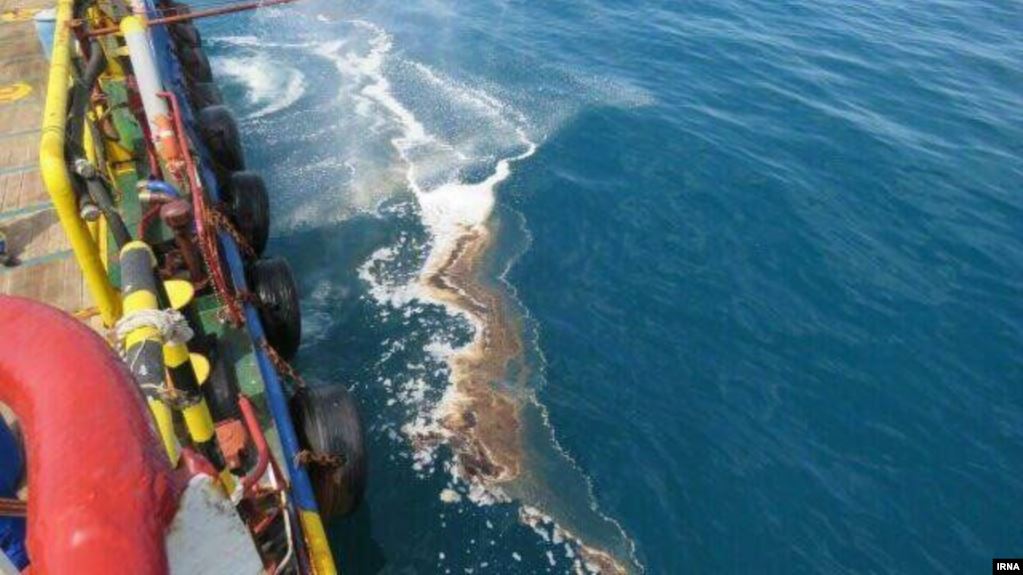
After images were released by Tanker Trackers, an international company that traces oil tankers, an Iranian official confirmed a major oil leak near Abuzar Oil Platform in the Gulf.
On Monday, Tanker Trackers published a picture showing a 20km oil spill in waters close to Kharg Island. In another tweet, this company wrote that the contamination is probably caused by oil pipes.
An Iranian official said that the cleaning operation has started upon sighting of the new oil spill near Kharg Island in the Gulf, but, given the size and possible expansion of the contamination, more facilities and reinforcements are needed.
Abuzar Oil Platform is supervised by Iranian Offshore Oil Company, a subsidiary of Iran’s National Oil Company, which runs many marine oil and gas fields in southern Iran. Kharg Island is Iran’s biggest oil terminal.
Radio Farda
Radio Zamaneh
